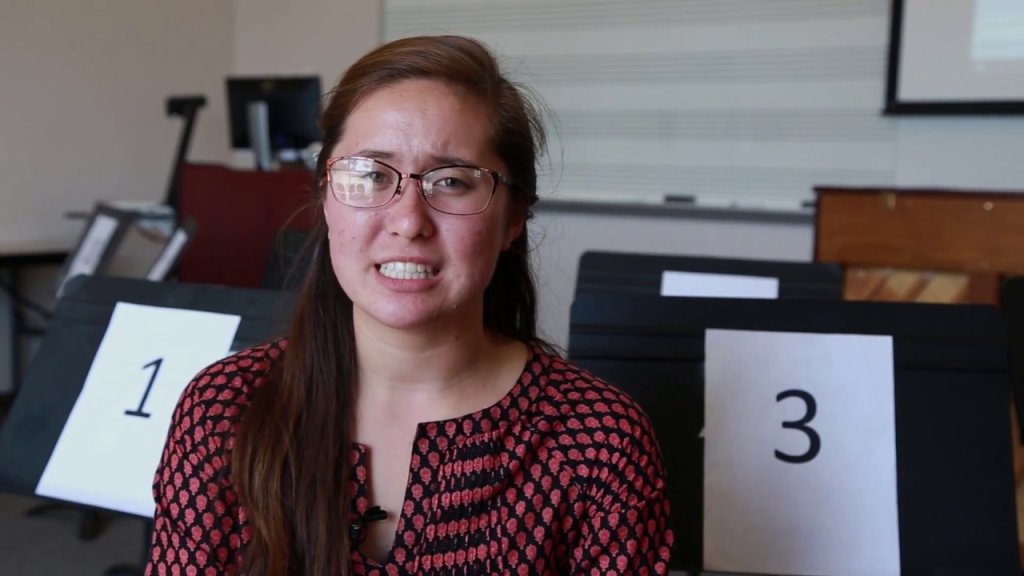
Extend your passion and talent as a string musician to elementary students through the Point Loma String Project, a rewarding three-level program that mentors university students as they teach local elementary-level string players.
Through this program, experienced college-level string players teach biweekly group classes under the direction of music faculty member Dr. Phil Tyler. Students of the string project will gain a practical foundation for their string instrument of choice (violin, viola, or cello), learn the basic principles of music theory, and gain an appreciation of music. The string instructors in turn gain valuable experience, confidence, and skills and will enjoy a distinct advantage in the job market upon graduation.
The purpose of the Point Loma String Project is to provide a real-life teaching laboratory where PLNU string students are trained as effective string teachers and young San Diegans are trained as proficient string players.
Parent Information
Are you a parent who's interested in registering your child for lessons through the Point Loma String Project?
Register online for the 2020-21 school year!

Point Loma String Project
Hear more about this great opportunity for both PLNU students and children in the surrounding community.
Watch Video:Point Loma String Project
Where Would I Fit?
Beginners
Never touched the instrument before or picking it up again after a long time? This is the place for you! The beginning class will go over:
- How to hold and play your instrument
- How to identify and play with accuracy, different note types, the notes on the staff, and fingering on the instrument
Beginner classes meet Wednesdays and Fridays from 4:30 – 5:20 p.m.
Intermediate
To move to the intermediate class, a student must:
- Name the parts of his/her instrument
- Be able to play basic scales (A, E, D, and G major scales)
- Demonstrate correct position while resting and playing
- Sight read a short piece (including clapping the rhythm and naming the notes)
- Accurately recognize and execute dynamics and bow direction
Intermediate classes meet Wednesdays and Fridays from 4:30 – 5:20 p.m.
*If you are new to the string project and believe your student may be able to start in the intermediate class, please email pointlomastringproject@gmail.com to schedule an assessment.
Advanced
To move to the advanced class, a student must:
- Sight read a short piece in a time signature other than 4/4 (including clapping the rhythm and naming the notes with sharps and flats)
- Identify given key signatures and explain their effect on the music and finger position
- Demonstrate ability to play with another part
Advanced classes meet Wednesdays and Fridays from 4:30 – 5:20 p.m.
*If you are new to the string project and believe your student may be able to start in the advanced class, please email pointlomastringproject@gmail.com to schedule an assessment.
The Details
When does the program run?
The string project classes line up with the PLNU calendar, beginning in late September, taking a break for Christmas, and ending in May. All classes meet Wednesdays and Fridays from 4:30 – 5:20 p.m. See the fall 2019 calendar for specific dates.
Registration
Registration is open to all students age seven and older.
Cost
The cost of this program is $400 for the academic year. This covers teacher stipend and program costs.
Instruments
Each student is required to bring his/her own instrument (violin, viola, and cello) to every class. This program does not currently provide instruments.
Please do not buy your instruments online; it is very difficult to determine the quality of an instrument bought this way. Students have had very bad experiences with instruments of such poor quality that they could hardly be played.
For instrument rentals, we recommend The Violin Shop and San Diego Violins.
For any questions you may have, or for additional information about this program, please email pointlomastringproject@gmail.com.
Point Loma String Project, a member of the National String Project Consortium, is modeled after the pioneering string project at the University of South Carolina.